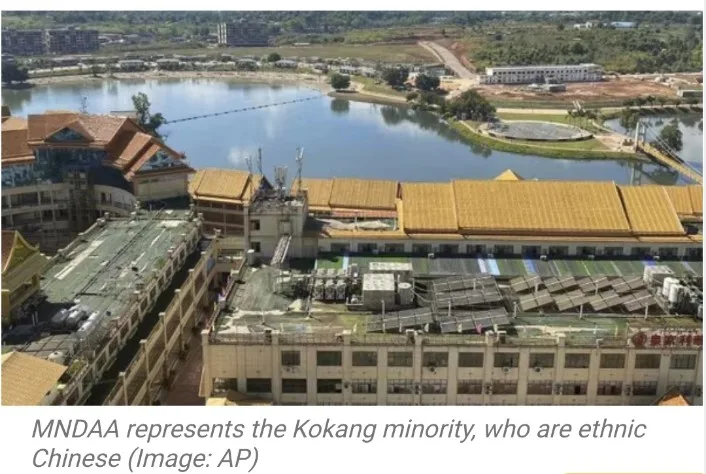In a noteworthy turn of events, Myanmar’s military government officially confirmed the withdrawal of its forces from the strategic city of Laukkaing, situated on the northeastern border with China. This withdrawal, acknowledged on January 6, marks a substantial defeat for the military, as an alliance of ethnic armed groups successfully took control of the city after months of conflict.
The fall of Laukkaing, the capital of the Kokang Self-Administered Zone, represents a series of setbacks for the military since the initiation of an offensive by the ethnic alliance on October 27. The alliance, known as the ‘Three Brotherhood Alliance,’ includes the Myanmar National Democratic Alliance Army (MNDAA), the Ta’ang National Liberation Army, and the Arakan Army.
The MNDAA, representing the Kokang minority, who are ethnic Chinese, played a pivotal role in the alliance’s successful campaign to capture Laukkaing. Myanmar government spokesperson Maj. Gen. Zaw Min Tun stated that the decision to relinquish control was influenced by various factors, including the safety of soldiers’ family members and Myanmar’s relationship with China.
The Three Brotherhood Alliance declared the entire Kokang region a “Military Council-free area,” claiming that over 2,300 military personnel, including six brigadier generals, surrendered on January 5. Social media clips showed the transportation of surrendered personnel to safety, reportedly under an agreement with the MNDAA for repatriation to Lashio, the capital of Shan’s northern region.
The alliance’s offensive, framed as a resistance against military rule and organized crime, specifically targeted cyber scam operations in Laukkaing that victimized Chinese nationals. China publicly supported efforts to eliminate these operations. While the alliance’s plans beyond Shan state remain uncertain, they have vowed to continue fighting against military rule.
This development raises questions about the military’s control in border regions and the implications for Myanmar’s relationships with neighboring countries, particularly China. As the situation unfolds, it adds another layer of complexity to the ongoing political landscape in Myanmar.







